I told him that’s why everyone does everything
Every day a last-minute reprieve from the governor
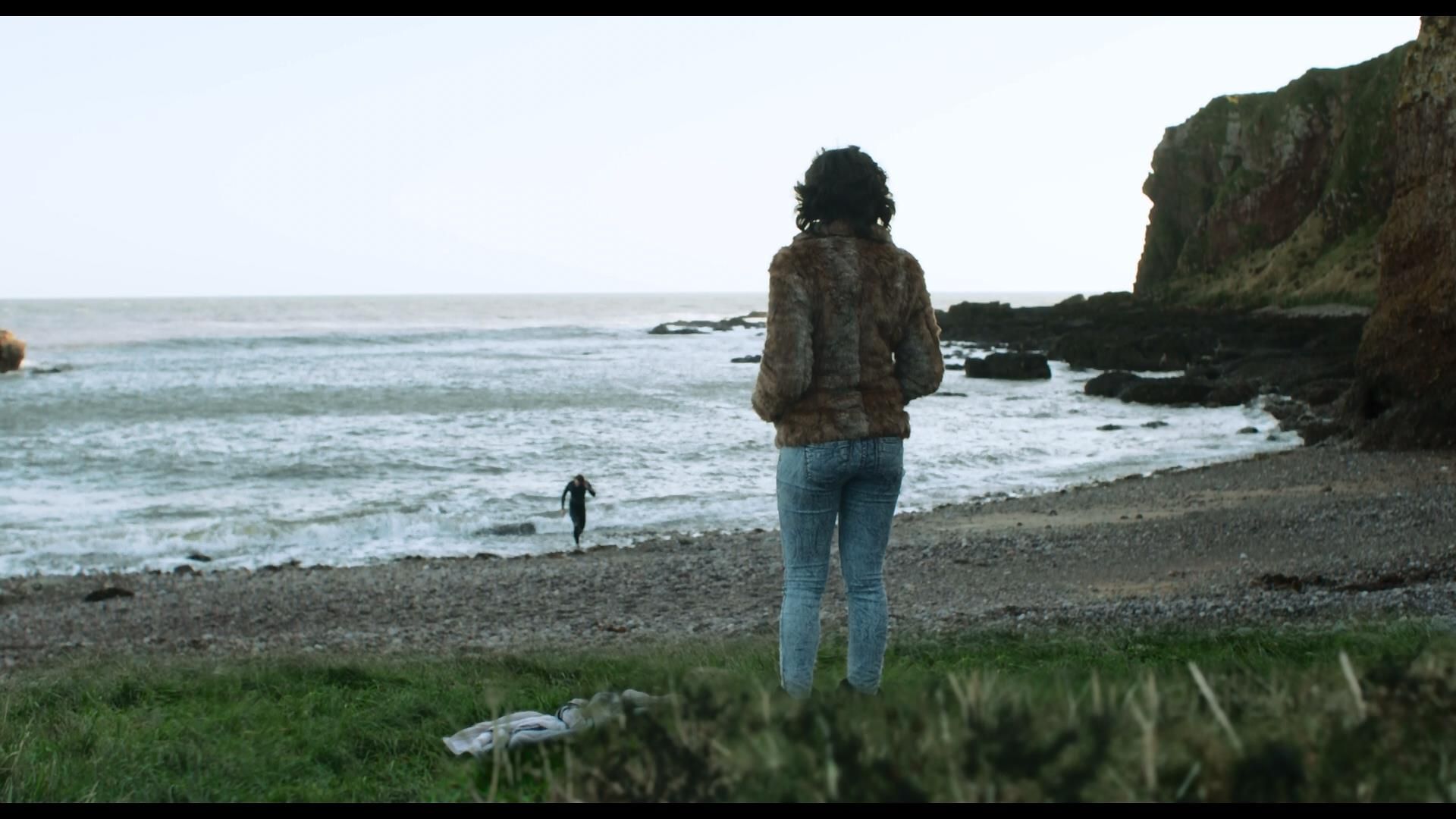
Down below for paying subscribers only Eli Motycka writes from Tennessee on the situation leading up to the expulsion of two lawmakers following protests about gun violence. You can also jump directly to that piece here.
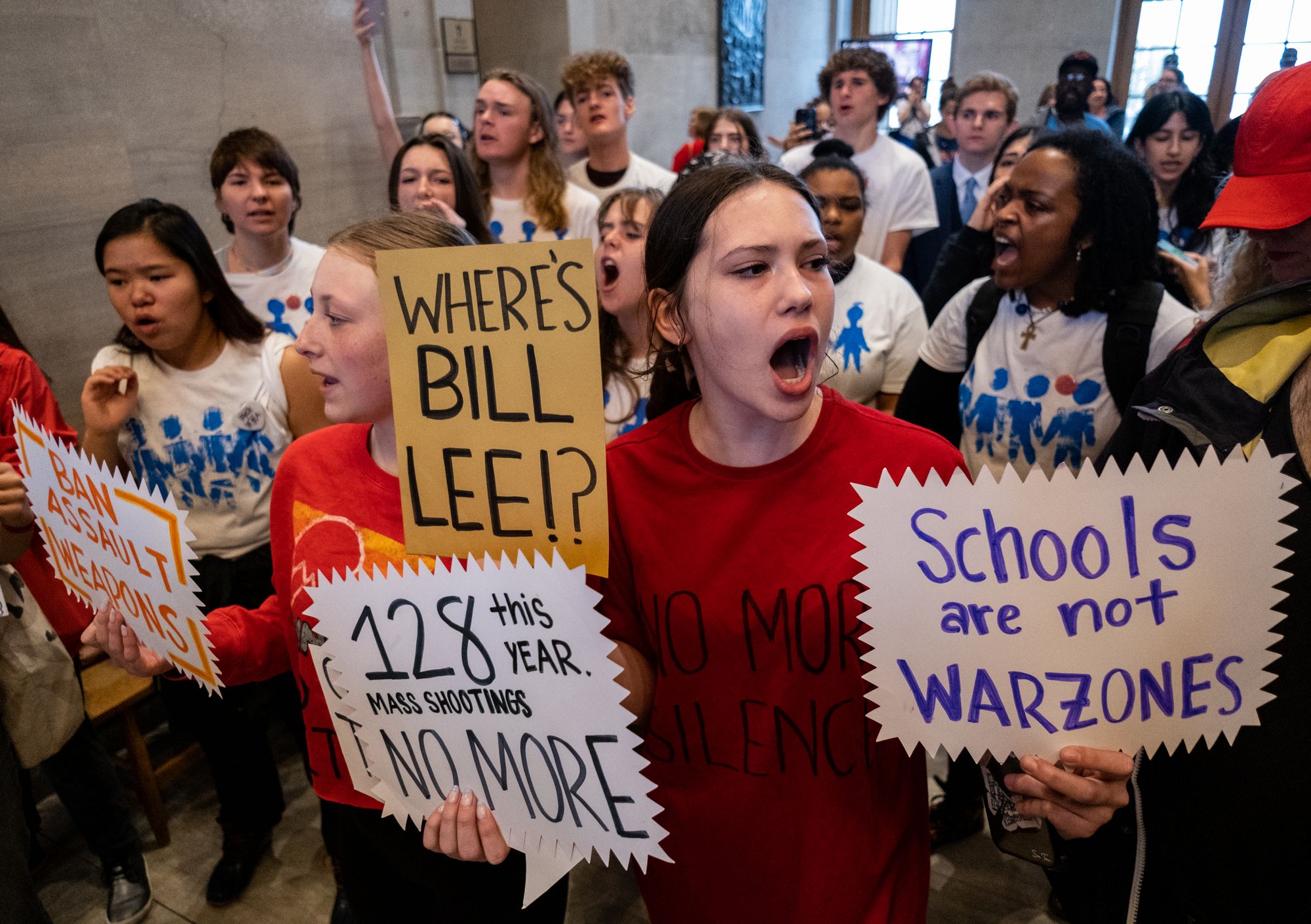
Previously he wrote for Hell World about how Republicans in the state seem more concerned with passing symbolic bills to own the libs than actually legislating.
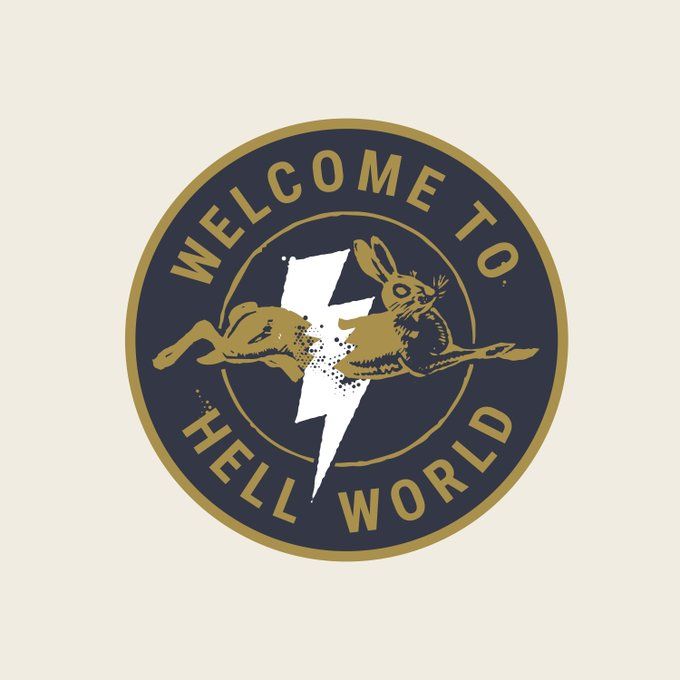
For my main thing today I thought I'd walk through some of the key influences that went into the writing of my new book A Creature Wanting Form including Virginia Woolf and Norm Macdonald two people who probably don't appear in the same sentence all too regularly.
Some of these riffs appear in the book itself and some I've recycled from earlier newsletters but it's the ethical hunter that uses every part of the animal as they say.
Oh real quick please make sure to listen to the new Wednesday album. It's as good as everyone is saying it is. The bittersweet and twangy "Chosen to Deserve" is the highlight for me but my god the visceral scream at the end of "Bull Believer." Harrowing shit.
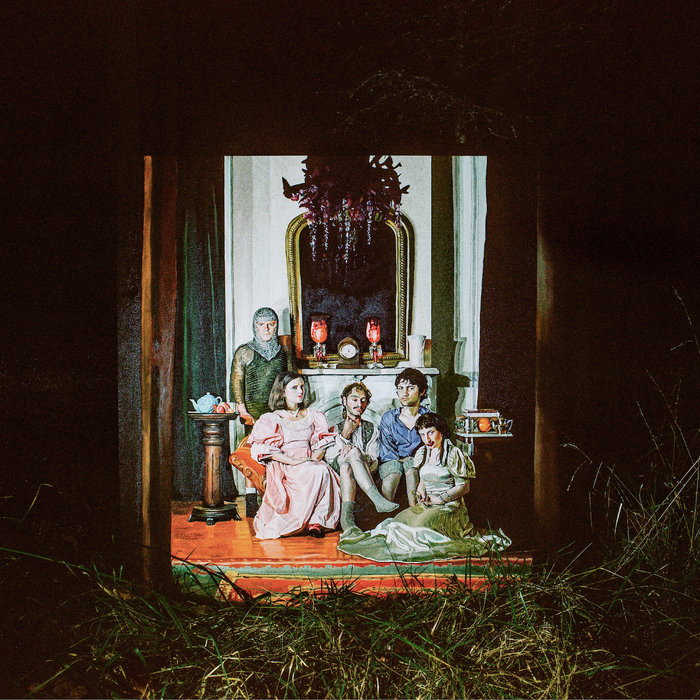
If you enjoy this newsletter please pay for it. Thank you.
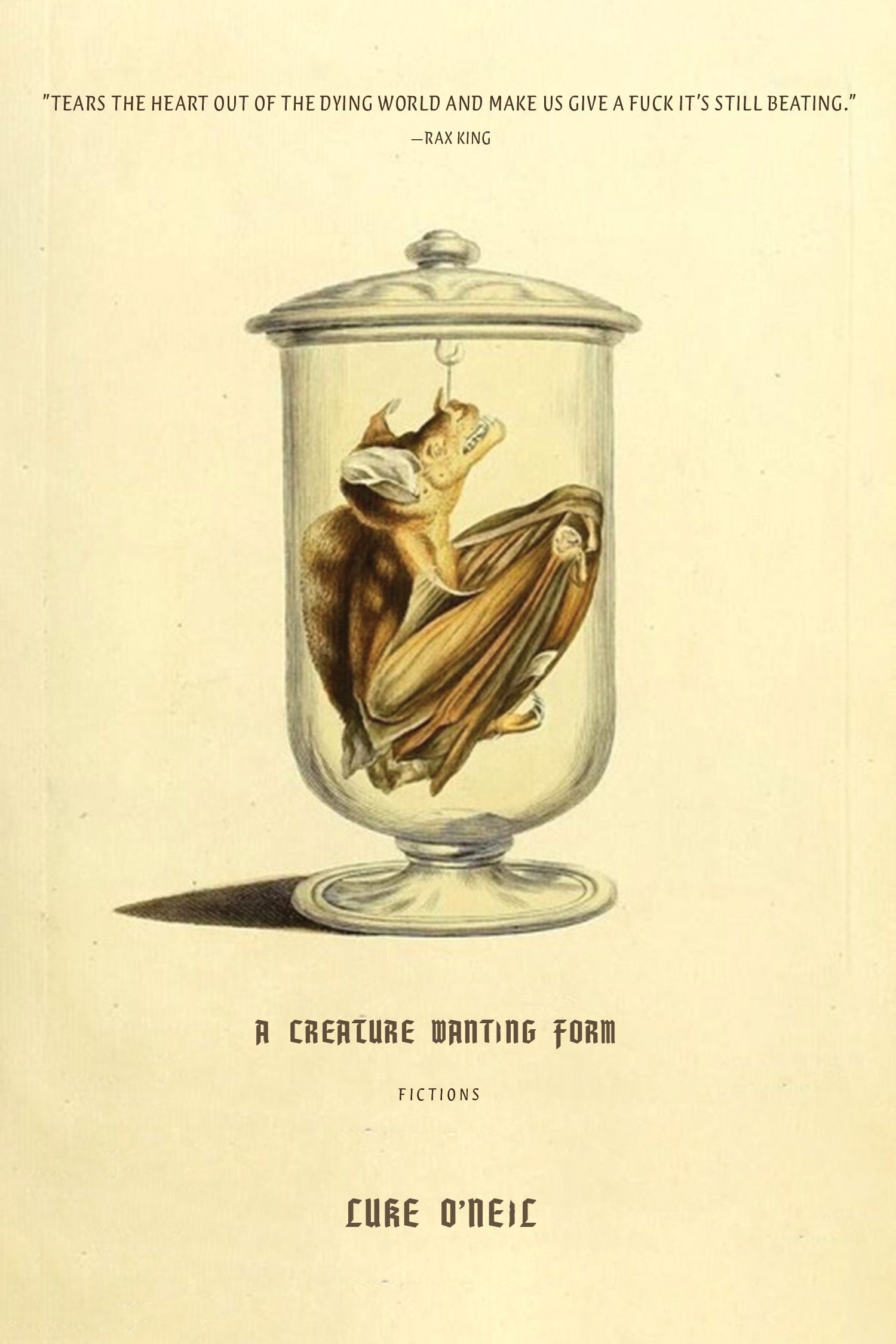
The War on Drugs
The band not the carceral catastrophe but also that too. I’m embarrassed to say how much I listened to this band during the writing of this book. Spotify (sorry) told me I listened for 5,571 minutes this year. I don’t even typically like this type of music but for whatever reason the propulsive reverb-laden riffs and the wide open spaces in the arrangements were the perfect soundtrack for the endeavor and as such it probably is no coincidence that so many of the stories ended up being set on the beach and concern the movement of water in an uncanny fashion. The title of the book — A Creature Wanting Form – is a riff on a lyric from their song I Don't Live Here Anymore which is of course a riff on Bob Dylan's Shelter From the Storm which is of course a riff on the first book of Genesis.
All of which reminds me this is an extremely long-since-lapsed-but-still-fucked-by-it-all Boston Irish Massachusetts Catholic book. It’s about time we heard from a guy like that in media.
Fever Dream
There are a handful of scenes in the book Fever Dream by the Argentinian writer Samanta Schweblin that are some of the more unnerving things I’ve read in years. The entire book is just that. Unnerving. It’s a fever dream after all.
The main character is a woman named Amanda who is dying for reasons we don’t understand at first and she’s relaying the last day she can remember to a child named David who is a sort of infernal inquisitor.
It’s only mentioned in passing but we are to understand that many of the children in the rural area where this is all taking place have been afflicted by some kind of herbicidal poisoning.
At one point David’s mother tells Amanda about the day everything changed for their family after a horse on the farm disappeared. Eventually they find it drinking from a river.
“I remember David asking what was happening. I was still carrying him, he was hugging my neck and his voice was clipped by the long strides I was taking, bouncing him side to side. ‘There, Mom!’ said David. And there was the stallion, drinking water from the stream. David doesn’t call me Mom anymore.”
That aside there. There’s dozens of little moments like that that seem like nothing but give you all of the information you require at the moment. Pretty much all of us will always call our mothers mom etcetera for the rest of our lives unless something especially terrible happens that changes either us or her or the distance between us. I personally call my mother ma and I say it with my full disgusting Massachusetts townie accent so she knows I mean it.
Melancholia
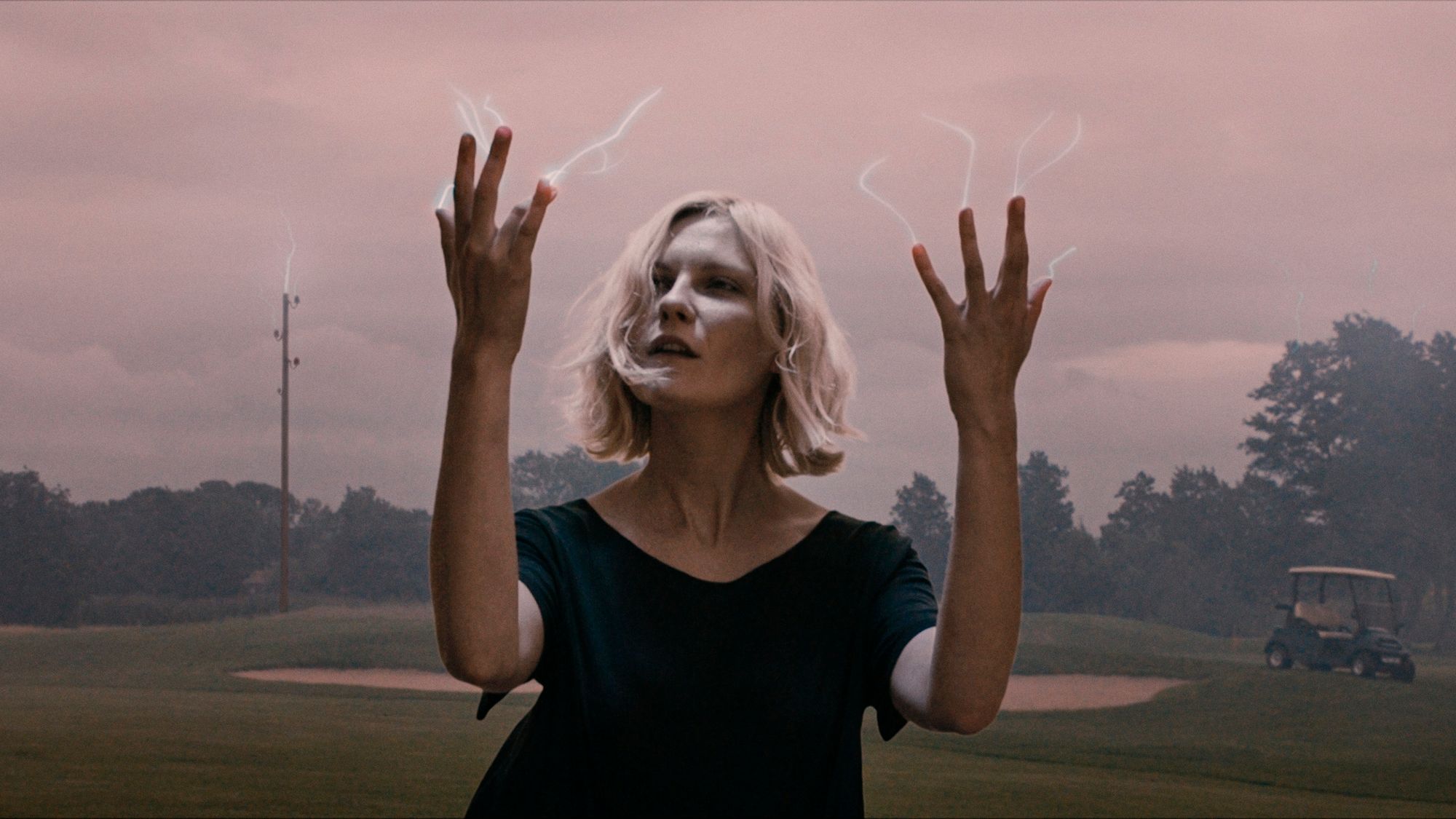
Watching this movie felt like plummeting in an airplane for three hours. I never want to do it again but I will never stop thinking about it. After I watched it I thought two things which were I need to write something immediately and I don’t think it’s probably worth writing anything ever again. Not just me but anyone.
On the plus side I thought it was novel to see what the end of the world might look like in a film where Iron Man doesn’t exist for a change. Would have been better for Kirsten Dunst and them if he had but you know what I mean.
Probably Iron Man would’ve been out of ideas with that whole thing I suppose.
The thing is the end of the world is in fact coming slowly and that is what is scary to me whether it’s the actual end of all earthly existence like in the film or just the end of your own life which is basically the same thing from a personal perspective.
Donald Barthelme
I think it would probably be fair to say a few of the stories in the book are George Saunders rip-offs but they're actually George Saunders ripping-off Donald Barthelme rip-offs. I have never once in my life looked at a big dangling moon and not thought to myself that it hates us. I wrote more about Barthelme in here the other day.

Laura Gilpin
I feel like this one doesn't really need me getting in the way with any kind of explanation.
“The Two-Headed Calf”
Tomorrow when the farm boys find
this freak of nature, they will wrap his body
in newspaper and carry him to the museum.
But tonight he is alive and in the north
field with his mother. It is a perfect
summer evening: the moon rising over
the orchard, the wind in the grass. And
as he stares into the sky, there are
twice as many stars as usual.
David Berman
David Berman was a poet which sounds weird to say because we don’t really have poets anymore. Whenever I think about him a couple lines come to mind from his book Actual Air that went like this:
I reached under the bed for my menthols
and she asked if I ever thought of cancer.
Yes, I said, but always as a tree way up ahead
in the distance where it doesn't matter.
Yes, I said, but always as a tree way up ahead
— luke (@lukeoneil47) August 7, 2019
in the distance where it doesn't matter pic.twitter.com/BdIRRFbLbt
I used that line as the epigraph to the Lockdown book.
I would have read that book around 2000 or 2001 or so when I was just coming out of college which is the most devastating time you can read a devastating collection of poems. It’s like how they say drugs and alcohol are particularly bad for young brains because they aren’t fully developed yet and it works sometimes like that with poetry too. Poetry just like drugs and alcohol is a delivery system for both despair and exultation and if you’re too young you don’t know what to do with either of those things.
When Berman died a couple of years ago I looked up everything he ever did like you do when someone dies and I saw a comic he drew once that was titled At the End of the World and in one of the panels there’s a happy looking stick figure sitting straight up in a stick figure hospital bed with a stick figure sun shining through the stick figure window and beneath it all it says:
The terminally ill perk up.
The terminally ill perk up is an ocean man. It’s an entire novel in a stick figure throwaway gag.
To the Lighthouse
A number of great works from the year 1927 have entered the public domain this year. Among them was Virginia Woolf's To the Lighthouse a book that was extremely important and influential to me as a young writer. Apparently not in her use of an absolute blizzard of punctuation however. I used a line from it in the epigraph to my first book the Welcome to Hell World book that still hangs over everything I do.
“To be caught happy in a world of misery was for an honest man the most despicable of crimes.”
Not to worry I will never be found happy. Unless my book somehow impossibly sells a lot of copies or the Celtics win the finals this year. Either of those things should buy me a couple of days.
Open Water
I used this bit in the new book but it isn’t about us in that context.
On one of our first dates my wife and I went to see a movie at the Kendall Square cinema called Open Water. It’s about a couple who go on a scuba diving vacation and are accidentally left behind by the boat. As they float further and further away from the original dive spot they bicker and blame one another and grasp for something different they could have done that would have saved them from this ordeal. As if logic is a shield against chaos. Eventually the realization that there is no order to things and that two people can in fact be left behind like this dawns on them. So thirst sets in quickly and the sun burns their faces as they bob on the tide and swarms of jellyfish sting and sharks begin to circle. All that’s left is for the two of them to continue living borne along on the waves for as long as they can not knowing which of them is going to die first.
On the Beach
I use this bit in the new book too.
People were talking about the idea of nuclear war for a while there so I took this book out again. It’s set in the 1950s and it’s about an American submarine officer and a group of people he meets while stationed in Australia after war has broken out across the globe and they are waiting for the fallout to reach them.
They get to live a little while longer than everybody else does.
So the guy Dwight Towers befriends this woman named Moira Davidson who reacts to the knowledge of impending doom at first by drinking heavily and despairing.
He tries to keep his shit together for the most part even though he knows his family back in the States are likely dead by now. At one point the two are discussing how the winds will eventually carry the radiation southward toward Australia. If they had blown more directly they would all be dead by now he tells her early in the book.
“I wish we were,” she tells him. “It’s like waiting to be hung.
“Maybe it is,” he says. “Or maybe it’s a period of grace.”
I suppose those are the two ways you can look at a normal life in general as well. We’re all born waiting to be hung and we can either despair over that fact or consider the interim a gift. Every day a last-minute reprieve from the governor.
Jason Molina
Almost Was Good Enough
Did you really believe
Come on did you really believe
That everyone makes it out?
Almost no one makes it out
Almost no one makes it out
Almost no one makes it out
Almost no one makes it out
The "almost" there.
It's so much worse than it would be if no one at all ever made it out. At least you would have the solace of that. The solidarity in suffering. That comfort that everything really is hopeless.
Norm Macdonald
I always kind of assumed the archaic phrasings and stilted diction that I use were lifted from Barthelme but I realized at some point what I am often doing is writing in Norm’s voice.
If you never read it his “memoir” is really something special. Here’s one part that has stuck with me.
I remember a psychiatrist once telling me that I gamble in order to escape the reality of life, and I told him that’s why everyone does everything. But I’ve had plenty of wasted nights, after losses and bigger losses, to consider the question more seriously. So why the attraction? Most people would think it’s the wins that keep the gambler going, but any gambler knows this is not true. As you place your chips on the craps table, you feel anxiety and impatience. When the red dice hit the green felt with a thunk and you’re declared the winner and the chips are pushed toward you, you feel relief. Relief is all. And relief is fine, but hardly what a man would give the whole rest of his life to gain. It has to be something else, and the best I’ve come up with is this: It is a particular moment. A magic moment that occurs after the placing of a bet and before the result of that bet. It is after the red dice are thrown but before they lie still on the green felt where they fall. It is when the dice are in the air, and as long as they are there, time stops. As long as the red dice are in the air, the gambler has hope. And hope is a wonderful thing to be addicted to.
This interview he did with Larry King was a punch in the gut for me too. All his talks with King were very good. But in this one these two men who are both dead now and one of whom knew he was dying at the time and kept it a secret talk about their fear of the goddamned thing.
“I have a fear of not existing,” King said.
“Yeah,” said Norm. “But, you know, the writer Nabokov, he saw a picture one time, and he said it was a picture before he was born. It was a picture of his mother, with his brother and sister, who were older than him, but he had not been born yet. He said when he saw that picture, there was no terror in him. Even though he was looking at a picture where he didn’t exist.”
“But he didn’t know anything, so…”
“Right. He didn’t. But he said, looking at that picture, it didn’t terrify him that he didn’t exist. So he said it won’t terrify me after.”
“The Ceiling” by Kevin Brockmeier
I wrote this in the first Hell World book but it’s still one of my favorite short stories ever so here you go again.
In the story the narrator notices a dark shape across the light of the moon one night and day by day it gets bigger and bigger and at first they aren’t sure if it’s expanding in space or getting closer. Some of the people in the town say it’s not actually there and that people are just seeing things. Soon they realize the birds and insects have all disappeared and no one knows where they’ve gone and things start to get tense but by and large people go on with their lives going to work and getting their haircut and carrying on extramarital affairs the three things people do.
“By the time the object had fallen as low as the tree spires, we had noticed the acceleration in the wind,” it reads.
“In the thin strip of space between the ceiling and the pavement, it narrowed and kindled and collected speed. We could hear it buffeting the walls of our houses at night, and it produced a constant low sigh in the darkness of movie halls. People emerging from their doorways could be seen to brace themselves against the charge and pressure of it. It was as if our entire town were an alley between tall buildings.”
Eventually the ceiling as they call it gets low enough that towers begin to crumble and then low enough that people can touch it and then low enough that they can perceive the shape their breath takes when it presses against them like a window on a cold day.
The story is ostensibly about the end of the world but it’s really about a marriage collapsing which is another kind of end of the world. I now read it as being about climate change though which is a third kind of end of the world.
Under the Skin

It’s just such a quiet and slow movie. I’m never going to stop thinking about it. She’s this alien that is part scout and part hunter that scoops up dumb shits along the side of the road whose fatal flaw is being horny for Scarlett Johansson and needing a ride somewhere which are two universal human experiences.
I forget what she did with them?
Well we don’t know. Ate them I guess. Close enough to that. Like we do with pigs and cows I guess but the way the harvesting was rendered obliquely and stylized and sort of withheld in the film was so much scarier and imaginative than something gory would’ve been. Something where you actually could see what was happening. It’s much worse to not fully understand how someone or something is dying.
Me and the Eagle by Sam Earle
The eagle looked down on the river below
And he wrapped his wings round him
And he fell like a stone
And the big salmon fought but the talons held true
And he shuttered as the world turned
From silver to blue
Maine
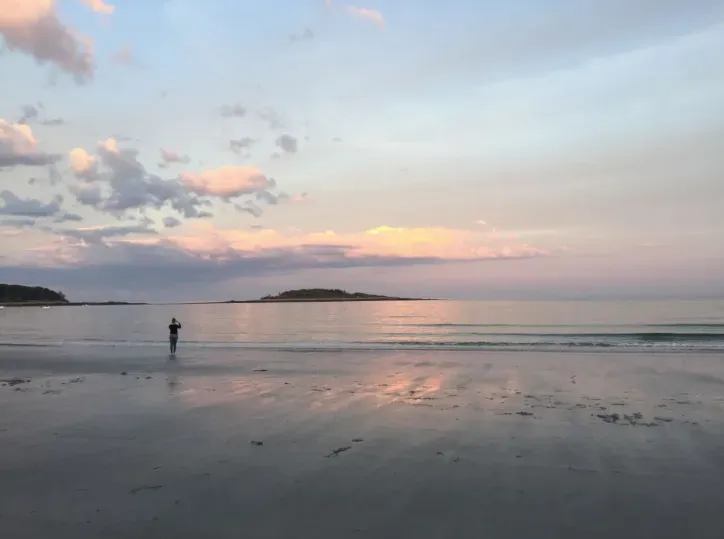
We go to Maine every summer and one thing I do is I walk out into the water and keep walking until I can’t walk anymore and then I have to start swimming. The water is warmer there than you would expect and I float out as far as I can and let the waves push me around and Michelle gets nervous and asks me not to go out so far where she can’t see me and I try to do that but it’s one of the only times I am ever really happy floating out there looking back to the shore where some people who love me are standing and talking and laughing and there they are hello everyone I’m here you can’t see me so well but I’m here and we’re here together and we’re all still here.
Ok that's enough of that carrying on. Here's Eli's dispatch from Tennessee. You'll have to be a paid subscriber to read the whole thing.
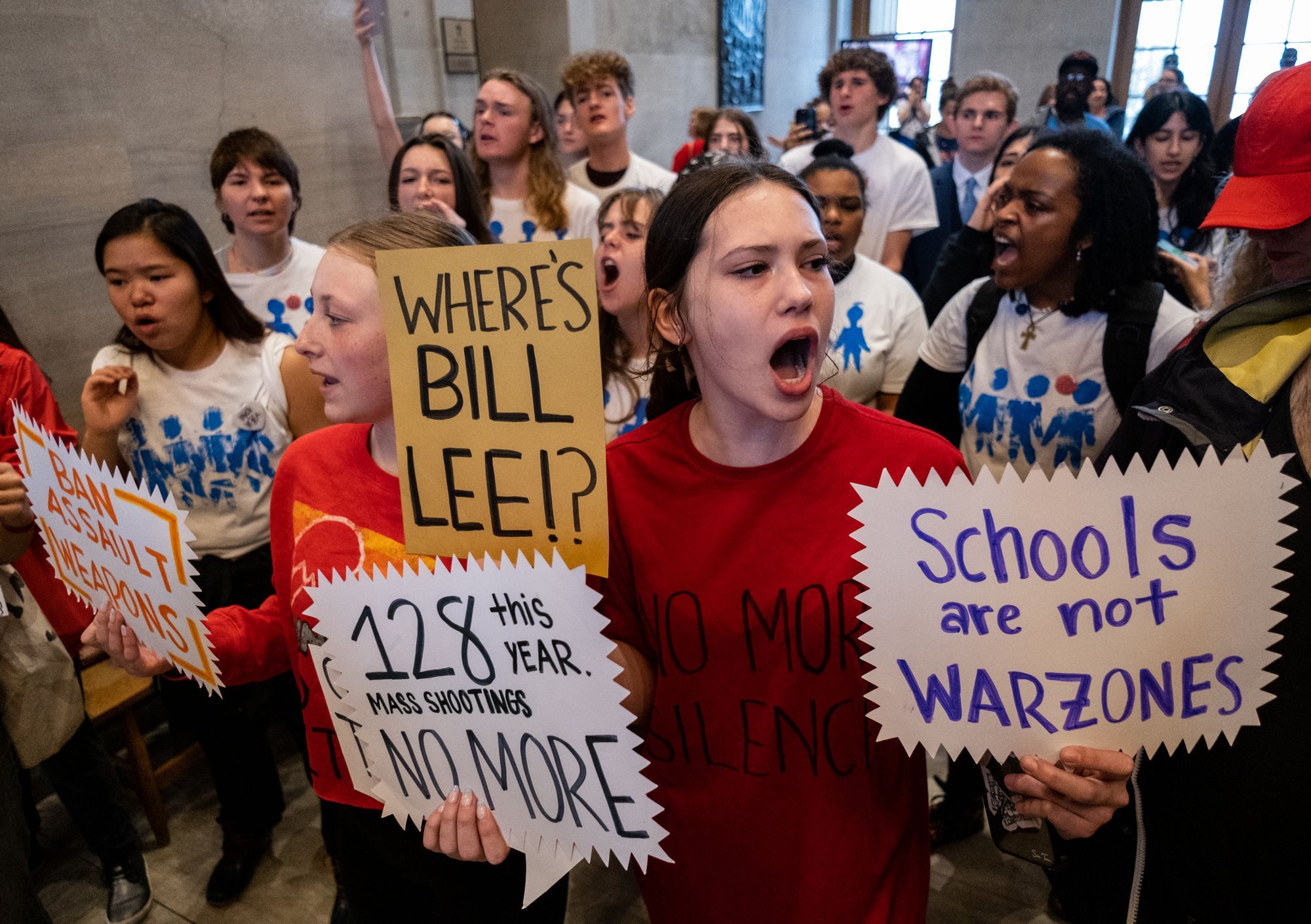
Ten days in Tennessee
by Eli Motycka
Republicans in the Tennessee House expelled representatives Justin Jones and Justin Pearson on Thursday. Both are Democrats, and both are first-term Black legislators in their late twenties. A third member, Gloria Johnson, a sixty year old white woman, survived expulsion by one vote.
TN State Rep. @Justinjpearson (D) ahead of House vote to expel him for protesting gun violence:
— The Recount (@therecount) April 6, 2023
“It is no coincidence that the two youngest Black lawmakers in the state of Tennessee, and one of two women, are on trial today ... This is what happens when you lose democracy.” pic.twitter.com/nUSCcNfOGS
A mass shooting on Monday, March 27 at the Covenant School, which educates students from preschool to sixth grade, ignited protests at the Capitol all week. Thousands of Tennesseans swarmed the grounds of the state house on Thursday, March 30, calling for the typical obvious gun control measures. Anything that might prevent more people from buying, selling, trading, and operating high-capacity weapons like the two AR-15s used at Covenant to kill six people, including three 9-year-olds.

